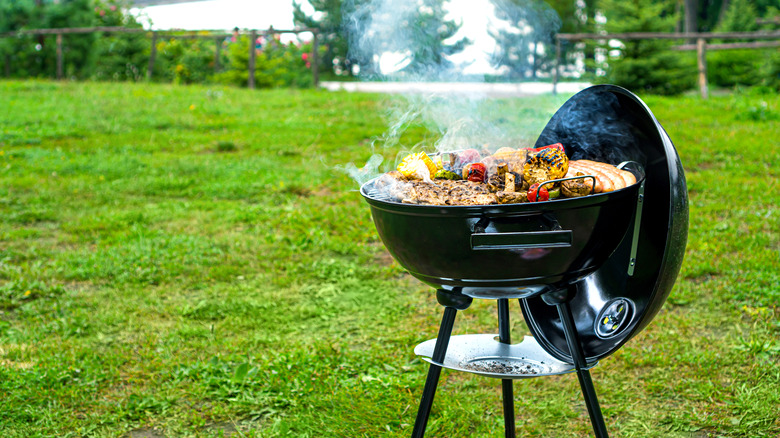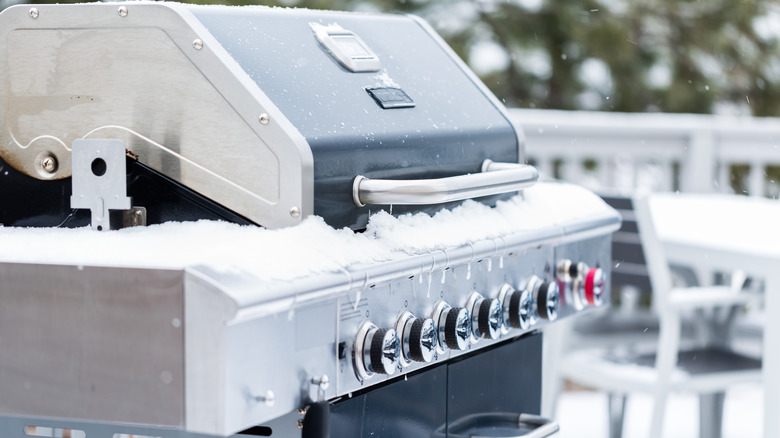The Right Way To Store Your Grill For The Winter
Though we've been frying up bread and meats over an open flame for centuries, the grills we use today were invented fairly recently. According to Cinders Barbecues, the conventional barbecue grill we picture today — you know, the one made of metal and uses some sort of fuel to keep the fire alive — was invented by George Stephen in 1952 at Illinois Weber Brothers Metal Works. Stephen created a dome-shaped grill perfect for any occasion: Cookouts, Fourth of July parties, backyard get-togethers, and birthday parties. Grills today mainly use gas or charcoal to produce a flame to heat a metal grill top to cook everything from corn on the cob to shish kabobs (via Leite's Culinaria). The grill cooks from the bottom up and lends the items roasting on it a classic smokie characteristic, which is why it is the preferred method for making barbecue.
Grills are great during the summer and early fall, but once rain and snow begin to fall, it's a sign to close up shop until next season. The problem is that you can't just shove your grill in a dry corner and hope for the best. You must take the appropriate steps to store your grill for winter to ensure its safety and to keep it in tip-top shape.
Protect your investment
Before doing anything else, you must properly clean your grill before packing it up. Michigan State University recommends removing the grates from the belly of the grill and clearing any grease and food bits from the interior and sides. Using soap and water, scrub the belly and grate until it is clean and reassemble. After a good and thorough cleaning, BBQ Guys state that to protect the metal, you must lightly brush cooking oil onto the grill grates, cover your burners in plastic (to keep out insects), and go so far as to polish the grill's exterior if you want it to keep looking nice.
Finally, protect the grill with a cover and store it in a safe, dry space until you plan on using it again. The BBQ Guys also recommends that if your grill uses an electronic ignition or a rotisserie motor, remove and store them in the house until the weather warms up again so they don't deteriorate. Winterizing your grill is necessary if you're not planning on using it for long periods of time. Leaving your grill dirty and unprotected from the elements not only shortens the machine's lifespan but could also endanger you in the future should something quite literally go up in flames. So, stay safe out there and tuck your grills away.

